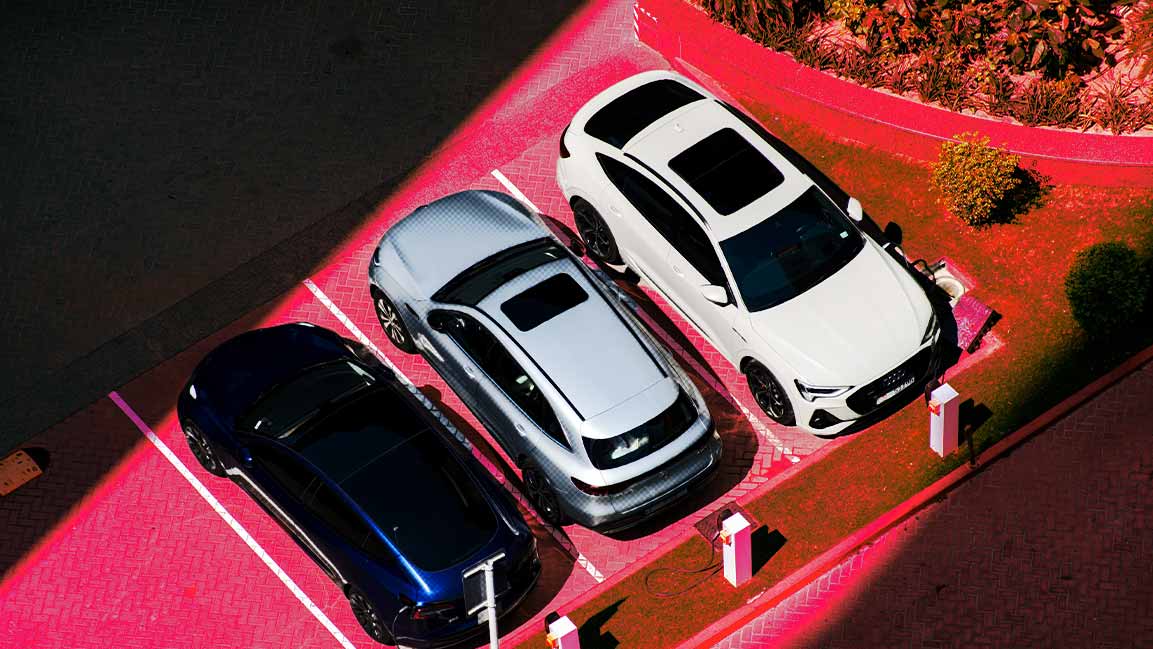- | 9:00 am
The business of parking: Dubai’s Parkin reinvents urban mobility, but at what cost?
Dynamic pricing and multi-story car parks are part of an ambitious strategy to alleviate congestion—but the effectiveness of these measures remains uncertain.

“We’re not just a parking operator,” says Mohamed Abdulla Al Ali, CEO of Parkin, Dubai’s official parking operator, at Gitex Global 2025. The statement signals the company’s evolving ambition: transforming parking from a basic utility into a pivotal element of the city’s broader transportation ecosystem.
In March 2025, Parkin introduced a variable pricing system, the first update since 2015, rolling out premium rates during peak hours and zone-based pricing across the city. “We moved from being a parking operator to managing and operating spaces,” said Al Ali. Now, 40% of public parking is classified as premium, up from 35%, subtly reshaping access to parking in a car-dependent city.
A VISION TO SOLVE THE CITY’S CONGESTION
To tackle Dubai’s increasing congestion, Parkin plans to build five multi-story car parks over the next two years, fully automated and equipped with services such as car washes and EV charging stations. “We want to create a system where there’s continuous rotation of vehicles, so parking spaces are available to all,” said Naveed Arshad Khawaja, Director of Strategy and Business Growth.
However, the question lingers: will new parking structures ease traffic, or simply accommodate more cars, perpetuating congestion in areas like Business Bay and Dubai Marina? Khawaja notes the strategic placement of these facilities in high-demand zones and admits investment models are still evolving, with a mix of light CapEx and potential joint ventures on the table.
On fees, he clarified, “The Government of Dubai sets all fares for public parking. We advise developers on private parking tariffs to keep pricing consistent and user-friendly.”
Still, critics might wonder if expanding parking infrastructure is the best use of resources in a city where public transport and shared mobility are still maturing.
TECH-DRIVEN CONVENIENCE BUT FOR WHOM?
Parkin’s digital ecosystem promises a frictionless experience: a mobile app showing real-time availability and fines, smart inspection cars, and fully automated payment systems. “There’s no manual enforcement anymore,” said Al Ali, highlighting convenience for tech-savvy users.
Yet Eng. Osama Hashim Alsafi, COO, acknowledges challenges. “In high-density areas, standard parking spots may be scarce, and digital tools can alienate those less fluent with apps or digital wallets.”
Parkin attempts to balance enforcement with empathy, a 10-minute grace period for on-street parking and a 24/7 call center show a service-oriented approach. “We’re not here to fine people immediately,” Al Ali said. But these user-friendly measures also sit alongside a business model geared toward returns.
Parkin raised $429 million from its initial public offering, in 2024 which received record investor demand of Dh259 billion ($71 billion).
Max Zaltsman, Head of Investor Relations, anticipates an additional 100 million dirhams (about $27 million) in revenue by the end of 2025 due to dynamic pricing and infrastructure investments.
Urban renewal efforts complement Parkin’s pricing overhaul. In Al Jaddaf, chaotic streets have been transformed into orderly, landscaped parking zones with improved pedestrian access. “Residents sent us videos showing the chaos before. Now it’s clean, beautiful, and orderly,” Al Ali said.
Parkin’s transformation reflects a global shift toward digitized, monetized urban infrastructure. Its vision positions parking not just as a service, but as a component of an integrated mobility ecosystem. Yet as Dubai embraces technology-driven solutions, the challenge remains to ensure inclusivity.
Al Ali emphasizes a holistic approach: “We don’t just raise tariffs; we study data, timing, and local needs before making changes.” Meanwhile, Khawaja underlines the importance of consistency between public and private parking fees to smooth the user experience.
Still, the city, and Parkin, must wrestle with whether these systems are accessible and equitable for all residents.
In the race to modernize Dubai’s parking and mobility, Parkin is driving innovation. But the road ahead will require balancing profitability with public service, and ensuring the future of urban mobility is as fair as it is smart.







































